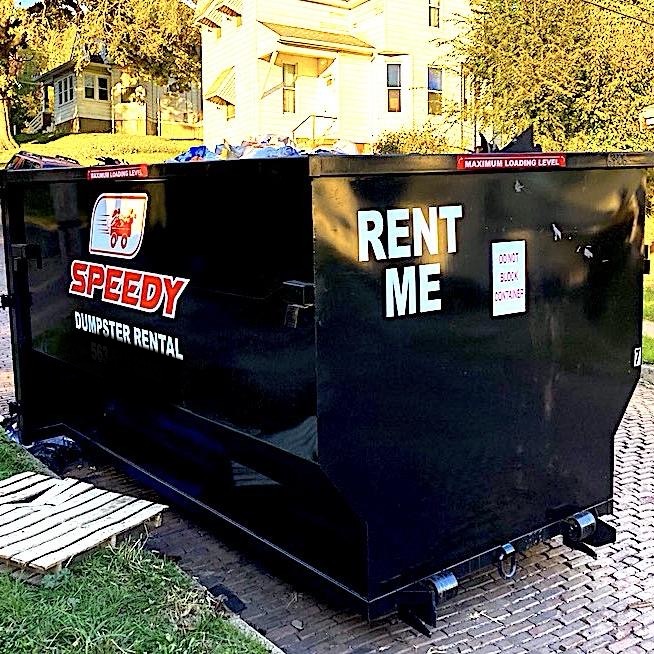OFFICE HOURS
Monday - Sunday: 7:00 AM - 7:30 PM

Roll-off Dumpster Rental in Donahue, IA
Roll-off dumpster rental in Donahue, IA for fast debris removal on construction or cleanouts. Schedule delivery today and save.
Roll-off Dumpster Rental in Donahue, IA
When you need fast, reliable debris removal for construction, demolition, or large cleanouts in Donahue, IA, a roll-off dumpster is the most efficient option. Roll-off dumpster rental in Donahue, IA provides a centralized, secure container that keeps work sites safer, speeds debris handling, and simplifies disposal compliance. Below is a practical guide to choosing the right size, preparing your site, understanding safety and weight rules, and navigating local permitting and scheduling considerations specific to Donahue and the surrounding Scott County area.
Common roll-off dumpster issues in Donahue, IA
Understanding typical problems helps you avoid delays and unexpected costs:
- Overfilled or improperly loaded dumpsters that block access or create safety hazards.
- Excess weight from dense materials (concrete, soil, brick) that triggers overage fees.
- Placement challenges on soft ground during spring thaw or on driveways susceptible to frost heave.
- Local permit or right-of-way rules for dumpsters placed on public streets or sidewalks.
- Weather-related delivery delays in winter (snow, ice) or spring (muddy access).
Typical projects and recommended dumpster sizes
Roll-off dumpsters generally come in 10, 15, 20, 30, and 40 cubic yard sizes. Match the size to your project type and waste volume:
- 10–15 cubic yards: Small home cleanouts, garage or attic cleanups, minor remodels.
- 20 cubic yards: Medium remodeling projects, small roofing jobs, kitchen or bath renovation.
- 30 cubic yards: Larger renovations, small demolition projects, multi-room cleanouts.
- 40 cubic yards: Full demolition, large construction sites, commercial cleanouts.
Choose a size with a margin for unexpected material so you do not exceed the fill line or weight allowance. For projects that generate heavy material (concrete, soil, tile), consider splitting loads into a dedicated heavy-material bin to avoid excess-weight penalties.
Delivery, placement, and site preparation
The delivery and placement process is straightforward but benefits from proper preparation:
- Site assessment: Ensure a firm, level surface for placement—paved driveways or compacted gravel are ideal. Avoid soft lawns during spring thaw to prevent sinking.
- Clearance requirements: Typical delivery trucks need 40–50 feet of approach and at least 12–14 feet of vertical clearance. Keep the delivery path free of vehicles, trailers, and low-hanging utility lines.
- Protection: Use plywood or boards under the dumpster’s contact points on driveways to protect asphalt or concrete from scratches and dents.
- Placement guidance: The driver will position the dumpster using rails and roll-off mechanics; confirm the exact spot beforehand and designate a safe zone for workers.
- Day-of delivery: Clear debris and obstacles at least 24 hours before scheduled drop-off. If winter conditions exist, clear snow and ice to avoid placement delays.
Safety, prohibited items, and weight policies
Safety and compliance are critical for efficient disposal:
- Fill line and load distribution: Never fill above the container’s rim or put materials higher than the fill line. Distribute weight evenly to maintain stability during pickup.
- Prohibited and restricted items: Hazardous wastes such as asbestos, chemicals, paints, solvents, tires, batteries, medical waste, propane tanks, and compressed gas cylinders are typically not allowed. Check local disposal rules for specifics.
- Heavy materials: Concrete, brick, soil, and tile are charged at higher rates or have stricter weight limits because they use more of the truck’s payload capacity. Segregate heavy materials when possible.
- Weight policies: Each dumpster size has an associated weight allowance. Exceeding that allowance results in per-ton overage charges. Request a weight estimate when booking and plan loads to avoid surprises.
- Documentation: Disposal facilities issue weigh tickets or receipts. Keep these for project records, job costing, or permit compliance.
Rental terms, scheduling, and local permits in Donahue, IA
Donahue’s local rules and weather patterns affect scheduling and permitting:
- Typical rental periods: Standard rental windows range from 7 to 14 days. Shorter or longer arrangements are often possible by request. Confirm pickup timelines when scheduling.
- Delivery windows: Deliveries are usually scheduled by morning or afternoon blocks. Allow flexibility for weather and route changes common in rural Scott County.
- Permit considerations: If a dumpster will sit on public property, street, or sidewalk, a permit may be required from the City of Donahue or Scott County. Homeowners associations may also have placement rules. Check with local authorities before placing a dumpster in the right-of-way.
- Seasonal planning: Donahue’s winters bring snow and ice; plan ahead for plow schedules and allow time for snow removal. Spring’s freeze-thaw cycle can soften ground—prefer paved placement or use additional ground protection.
How to avoid common problems and control costs
Practical steps that reduce delays and extra charges:
- Right-size your dumpster: Overestimating a little is better than underestimating. For heavy waste, choose a smaller bin or separate heavy materials.
- Sort materials on site: Keep recyclable materials like metal, cardboard, and clean wood separate to lower disposal costs and meet recycling requirements.
- Prepare the area: Clear access, protect surfaces, and mark placement spots. Remove low-hanging wires or notify utility providers if access is tight.
- Follow the fill line: Avoid overfill to ensure the truck can pick up the container without spillage.
- Document disposal: Keep weight tickets for billing transparency and project accounting.
Conclusion: long-term benefits and maintenance tips
Roll-off dumpster rental in Donahue, IA streamlines large-scale cleanup, improves site safety, and ensures responsible disposal in line with local regulations. Proper planning—choosing the correct size, preparing the site for Donahue’s seasonal conditions, segregating heavy materials, and understanding weight and permit rules—prevents common pitfalls and keeps projects on schedule. Regularly sorting debris, protecting driveways during placement, and maintaining clear access are simple maintenance practices that save time and money while preserving neighborhood safety and compliance.

Customer
Testimonials
See what our satisfied customers are saying about their experience with us.
